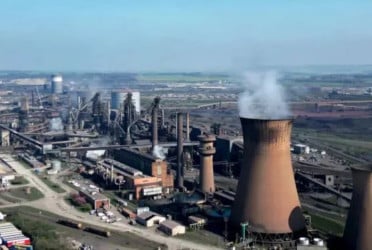What if the future of sustainable architecture could be found in your car’s dashboard? A new building material called Post Rock is transforming automotive waste into stunning exterior panels that resemble quarried marble, as reported by Fast Company.
Developed by University of Michigan architects Meredith Miller and Thom Moran, these sleek black panels are marbled with striking orange veins. However, their striking appearance hides an important environmental innovation. Made from melted-down plastic waste from Detroit’s auto industry, these panels give new life to materials that would otherwise end up in landfills.
"We had this idea that waste plastic could be made to seem more valuable through design," Miller said — and that’s exactly what they've achieved.
Post Rock addresses two pressing environmental challenges: the construction industry’s massive carbon footprint and the Detroit area’s 300,000 tons of plastic waste generated annually, according to Fast Company. This material offers an elegant solution to both problems.
The journey to create Post Rock began in 2015, inspired by plastiglomerates — composite rocks formed in the ocean from waste plastic and sand. Miller and Moran saw an opportunity to turn an environmental problem into an architectural breakthrough.
Using a patented process involving heat and robotic arms, the team discovered that certain automotive plastics (specifically polyamides used in dashboards and wire coverings) could be transformed into durable, fire-resistant building materials. These plastics already meet strict building safety standards, making them ideal for construction use.
What makes Post Rock unique is its potential to reshape the built environment while reducing waste. Builders could use these recycled panels instead of extracting new materials from the earth. The material's marbling subtly hints at its automotive origins, showing that eco-friendly solutions can be stylish as well.
The future of Post Rock looks promising. The team expects to meet National Fire Protection Association regulations within a year, bringing this innovative material one step closer to transforming the construction industry and waste streams in cities across the U.S.
Bd-pratidin English/ Jisan






























































